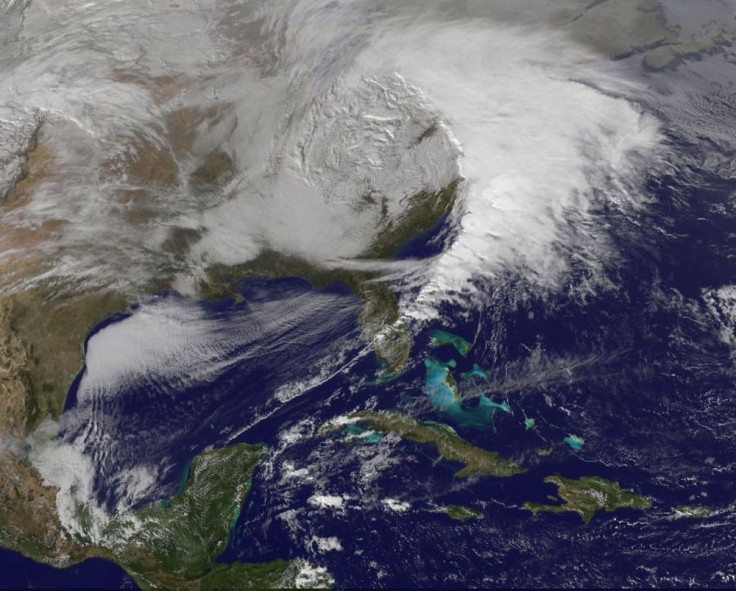Winter Storm Euclid: How It Affects Your Holiday Travel

Winter Storm Euclid traveled across the United States this holiday week from California’s Sierra Nevada Mountains to the White Mountains of New Hampshire. Its Christmas present to the nation: mounds of road-blocking, runway-shutting snow.
The post-Christmas travel delays continued Thursday as Euclid pushed into the Northeast after dumping up to a foot of snow in states from Texas to New York. Portions of Maine could see well over 12 inches before the storm pushes off into the Atlantic Friday.
Mounting flight cancelations topped 560 by midday Thursday, bringing the storm’s three-day total to well more than 2,100. Airports in New York, Toronto and Montreal all reported at least two-dozen canceled departures as well as delays of over an hour, according to the Federal Aviation Administration. Philadelphia, meanwhile, axed nearly 100 flights in and out by midday and had average delays of about 30 minutes.
The disruptions at important hubs along the East Coast had a ripple affect across the U.S., though most major airlines have enacted flexible rebooking policies for customers scheduled to fly into the storm’s path.
On Wednesday, flight-tracking website FlightAware reported 1,638 cancelations within, into or out of the U.S.
American Airlines and its regional affiliate American Eagle saw the biggest disruption of service, axing 500 flights, according to spokesman Matt Miller. Most of those were at the airline’s biggest hub, Dallas-Fort Worth International, where some 1,000 passengers are said to have spent Christmas night awaiting flights.
Winter Storm Euclid also stranded travelers on the ground. Megabus canceled two of its Northeast routes Thursday, while Greyhound axed six from New York to Quebec.
AccuWeather Senior Meteorologist Kristina Pydynowski warned that road travel near Buffalo, Syracuse, Rochester, Burlington and Caribou in the U.S. -- and Toronto, Montreal and Quebec City in Canada -- could be extremely tough.
“Several inches of snow will alone make driving treacherous. Wind severely blowing and drifting the snow around will only worsen the situation by dramatically reducing visibility and further clogging roads,” she said. “Where the snow is preceded by rain, a greater danger lurks for motorists as rapidly falling temperatures will also cause any wet spots to turn icy.”
The Federal Emergency Management Agency called on Americans to update their vehicles’ emergency kits to be prepared for cold weather. Kits, it tweeted, should include a shovel, battery-powered radio, blankets and gloves.
If you think the worst is over, think again. Meteorologists at AccuWeather warn that states from Virginia to Maine could see another blanket of snow by Saturday if current computer models pan out, further compounding holiday travel as Americans return from Christmas and head out for New Year’s Eve.
Cities up and down the I-95 corridor from Washington to Boston are projected to see between 1 and 3 inches of snow by Sunday evening.
As always, anyone traveling by air in the coming days is encouraged to check the status of their flight before heading to the airport, while those traveling by car should monitor the progress of both winter storms and check with local authorities to stay up to date on road conditions.
© Copyright IBTimes 2024. All rights reserved.






















